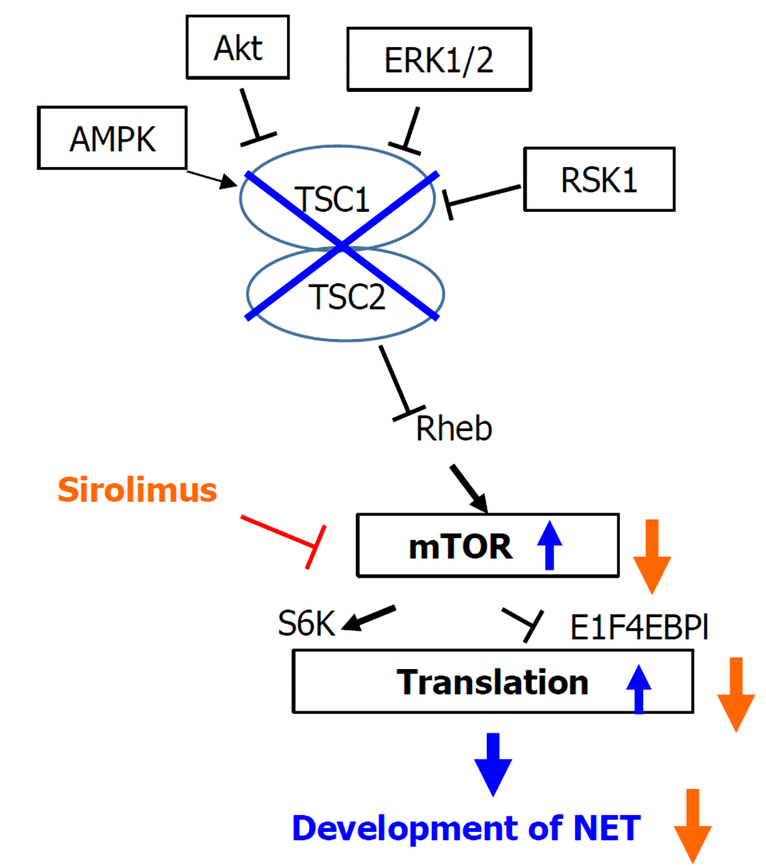Copyright
©The Author(s) 2020.
World J Gastroenterol. Dec 7, 2020; 26(45): 7263-7271
Published online Dec 7, 2020. doi: 10.3748/wjg.v26.i45.7263
Published online Dec 7, 2020. doi: 10.3748/wjg.v26.i45.7263
Figure 5 Diagram showing that the mammalian target of rapamycin inhibitor suppresses the formation of neuroendocrine tumor by suppressing the AKT-mTOR pathway.
In the AKT-mTOR pathway, mutation of tuberous sclerosis complex (TSC)1/TSC2 genes causes mTOR to proliferate and generate neuroendocrine tumor (NET). Sirolimus, an mTOR inhibitor, inhibits the abnormal growth of mTOR, which suppresses the generation of NET. TSC: Tuberous sclerosis complex; AMPK: Adenosine 5'-monophosphate (AMP)-activated protein kinase; ERK: Extracellular regulated protein kinases; RSK: Ribosomal S6 kinase; EBP: Evidence-based practice; NET: Neuroendocrine tumor.
- Citation: Ishida N, Miyazu T, Tamura S, Suzuki S, Tani S, Yamade M, Iwaizumi M, Osawa S, Hamaya Y, Shinmura K, Sugimura H, Miura K, Furuta T, Sugimoto K. Tuberous sclerosis patient with neuroendocrine carcinoma of the esophagogastric junction: A case report. World J Gastroenterol 2020; 26(45): 7263-7271
- URL: https://www.wjgnet.com/1007-9327/full/v26/i45/7263.htm
- DOI: https://dx.doi.org/10.3748/wjg.v26.i45.7263









